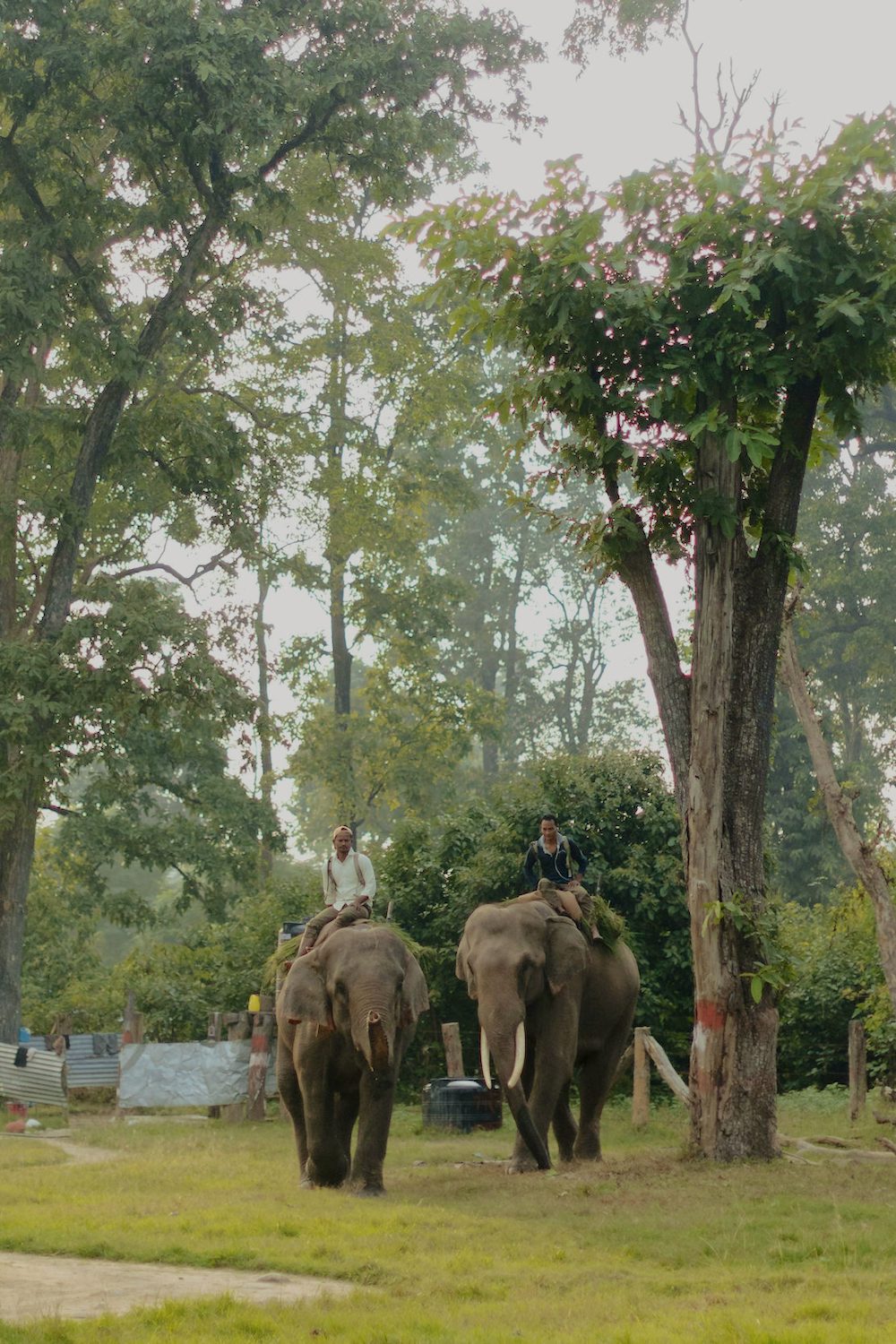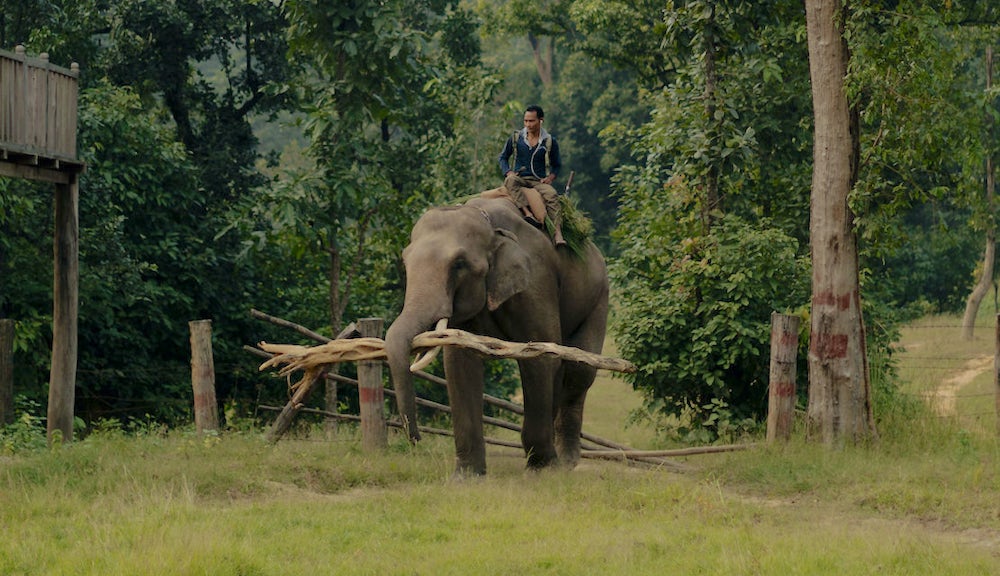Women in the western jungles of Nepal face a particular set of farming challenges. Only a narrow dirt road separates their homes and Banke National Park, a natural habitat for pythons, hyenas, crocodiles and tigers.
But until recently, the farmers faced a bigger threat — by about 10,000 pounds.

“[Wild elephants] used to destroy our rice and maize,” said Durga Paudel, chair of the Sanghrasil Cooperative, a group of women who are participating in a Heifer Nepal project. “They troubled us a lot. The wild elephants would know when the rice was ready to be harvested, and they would come during that time.”
When locals heard the elephants coming, they would play musical instruments and honk the horns of vehicles to try to deter them. In the end, chasing the animals away with fire was the only effective, if temporary, solution.
Now wild elephants are no longer an issue, thanks to, well, some different elephants. Ganesh and Samir were relocated to Banke from another national park. And while it’s true they are indeed elephants, they’re certainly not the crop-crushing variety.
Mahouts, or elephant riders, take care of the animals and ride them out into the forest every day to forage. While out, the elephants use their powerful trunks to gather firewood and bring it back to their shelter. Over time, the elephant riders and elephants build a relationship with each other and learn to communicate.
“If I drop my notes, [the elephants] will even pick it up and give it to me,” said Roop Lal Tharu, a Banke mahout.

Ganesh and Samir are primarily a tourist attraction. The elephants are well off the beaten path, but visitors who do find them can venture out into the jungle on their backs for a fee. In the Western world, the elephant tourism industry has faced scrutiny for treatment of the animals and sometimes the mahouts. Although in many instances the criticisms are well-founded, others argue that the issue isn't a simple one, and responsible tourism is the best option available to take care of elephants already in captivity.
But apart from their role in the local tourism industry, Ganesh and Samir provide benefits for their neighbors across the street.
“We also use elephants in times of difficulty,” Tharu said. “For example, if tigers go around eating humans, then we have to take elephants in order to counterattack the tiger. Tigers are scared of elephants.” When asked how often that happens, Tharu admitted, “It hasn’t happened here.”
The mahouts do employ Ganesh and Samir when wild elephants come around, though. Poudel, who lives a 10-minute walk away from the pair of pachyderms, says the wild elephants steer clear of the neighborhood now. “The wild elephants and Samir and Ganesh confront each other,” Poudel said. “When the wild elephants come, the people of the national park come and chase them away. The elephant riders already know what to do.”
In addition to being helpful neighbors, the elephants also hold a special place in the hearts of many in Nepal, which is home to the world’s highest percentage of Hindus.
“We Hindus, we treat elephants as god, as Lord Ganesh,” said Paudel. “Every Tuesday, we even fast for Lord Ganesh. We offer some special sweets called laddu. Whenever we see the temple of Lord Ganesh, we go there and offer our respect.”
Since the cooperative members are locals, some of the mahouts have offered to let take the elephants out for a ride for free. So far, they’ve all been a little too nervous to accept the offer. But that hasn’t stopped their children from doing it.
“They must have had fun,”said Jasi Oli, a Sanghrasil member. “They were shouting, saying, ‘I rode the elephant today.’”
Now that the wild elephants no longer wreck the farms belonging to the women of Sanghrasil Co-op, they’re focusing on other animal problems. “The wild boars come and eat the grains,” said Oli. “If you rear animals, the tiger comes and eats it.” So far, the women have raised sturdier fences to try to keep predators away from the livestock, with varying results, but they are still trying to figure out how to solve both issues.